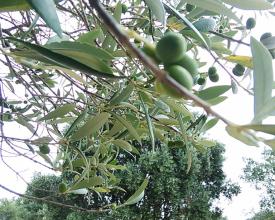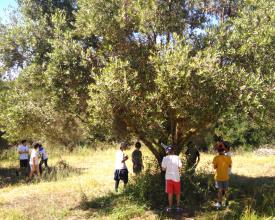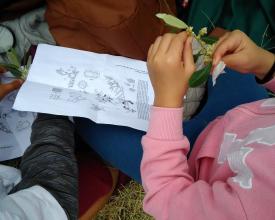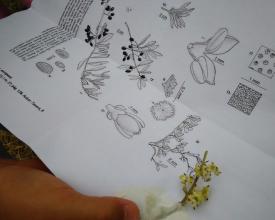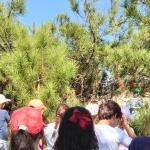
Outdoor Visits to an olive tree collection to raise awareness about olive tree varieties and agrobiodiversity
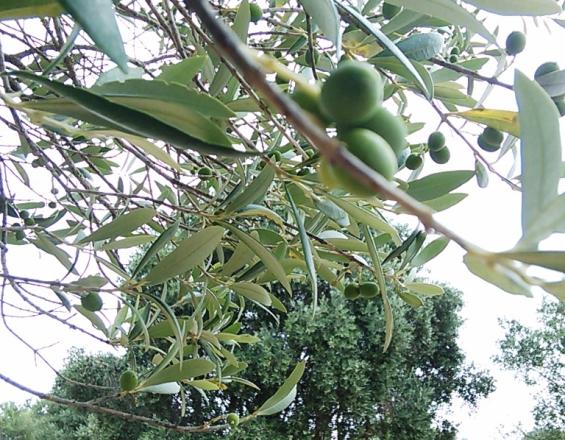
An olive tree collection planted for agronomic research in the 1980-90s is a biological resource used for outdoor visits, to students and other publics, with the aim to raise awareness about olive tree biodiversity. Nowadays this is relevant as olive tree cultivation is experiencing a shift from traditional to modern groves, planted with only a few varieties, which is a factor leading to genetic erosion.
The collection has several varieties from Portugal and other 5 countries: France, Greece, Italy, Morocco and Spain. Some are: Arbequina (SP); Branquita (PT); Carolea (GR); Leccino (IT); Manzanilla (SP); Picholine Marocaine (MAR) and Picholine (FR).
Outdoor visits have helped students and wider publics to learn about olive tree biodiversity (Lima, 2020). The collection is managed by a partnership between INIAV, I.P. and Oeiras Municipality, with collaboration of 2 national Olive tree nurseries, which offer new Portuguese olive tree varieties (e.g., Lentisca; Bical) to broaden the collection varieties.
Impacts
- Outdoor visits have helped youths to learn and appreciate the rich biodiversity of olive tree
- Outdoor visits with young students address three current relevant phenomena of their current way of life- extinction of experience, nature disconnection and plant awareness disparity (i.e. – the idea that students tend not to notice or appreciate the plants in their environment)
- Living tree collections are a biological resource with value in terms of agrobiodiversity conservation, namely when genetic erosion may occur in groves planted with only few varieties.
- Although this initiative was limited to one country (Portugal), its results are potentially useful for school communities in other countries which have olive tree groves in their landscape, with the aim of promoting direct experience of nature for young generation

